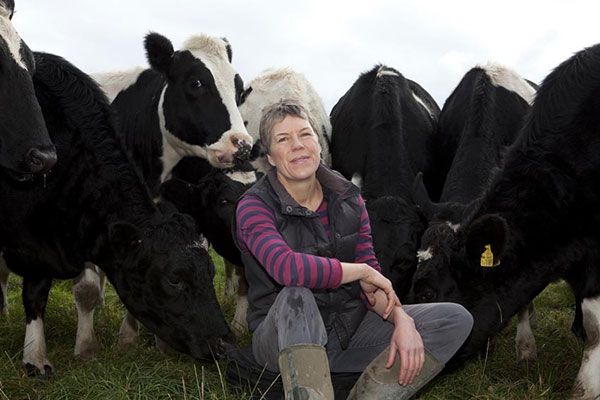Organic farming leaders and business experts have issued a powerful call for action for businesses to help address an ‘endgame’ scenario in climate and biodiversity action.
Speaking at a Soil Association event this week, chief executive and organic farmer Helen Browning called 2020 the start of “the most important decade humanity has ever faced”.
“We know that over the next decade, we need all of our land to be farmed agroecologically, like organic already is doing. We also need to challenge ourselves to see how much more nature organic can protect.
“The situation is so urgent – this is not a time to sit in our ivory towers and in our siloes. This is a time to work together,” she said. “Organic food and farming have been trailblazing an alternative for the past 60 years. It’s time for that alternative to become the mainstream.
“If we do it really well we can reverse the loss of biodiversity, feed people really well, and slow our impact on climate. This is the stuff that will determine the prospects of future generations.”

In food and farming, organic should be the bare minimum in how to farm to protect the planet, Browning said, while stating that even organic businesses should “go further to protect nature”.
Re-orientating societies and businesses to prioritise planet and people, alongside profit, is a key solution to the crises facing the planet, according to another speaker, business expert Victoria Hurth, of the University of Cambridge Judge Business School.
“Businesses should be engines for wellbeing,” said Hurth. “The problem comes from the Western ideal of a free market economy – free from government interference, and with no real constraints.
“We’ve done really well at checking financial outcomes, without remembering to check the wellbeing outcomes. It has resulted in short-term financial benefits for a few rather than long-term wellbeing sustainability outcomes for all.”
Unrestrained market economies have largely resulted in the crises facing the world today, including climate change, biodiversity losses, the pandemic, and the global financial crash, as businesses are allowed to operate to prioritise only profits, with no other constraints, said Hurth.
“It’s all one big reminder that we should hold businesses to account. We are at endgame time in terms of the threats facing our future, she said, adding that “there is deep support for paradigmatic change coming from both young and old” in terms of how to transition post-Covid.
The urgency over climate change and biodiversity losses is stepping up, with two new programmes by David Attenborough bearing witness to the deterioration of natural habitats throughout his career, and presenting the facts around species extinction.
Protecting wildlife, rewilding and restoring marine and land habitats not only protects wildlife, but slows the impact of climate change by storing carbon through natural climate solutions, Attenborough pointed out.













It is simply time to face the root cause ! Humans have exploited animals for decades for profit. When humans gather animals together to farm they create “Flu Factories” Fact Animal agriculture produces more CO2 emissions, than car, train and planes put together. The poisoning of air and water systems and use of land and destruction of forests along with t he consumption of vast amounts water resources eg. 2,500 gallons to produce 1 1b cowsteak The question to be asking today is “Do you want a future?” and are you prepared to eat the diet that our anatomy and physiology is designed to eat ? Humans are frugivores designed to consume 100% plant diet to maintain optimum health. and becoming naturally lactose intolerant by 4yrs of age. We need to change our daily choices from misplaced addiction to livestock products and break the never ending cycle that generates these highly dangerous infectious diseases, antibiotic resistance and the prime cause of climate change. Over a billion farmed animals are killed in the UK each year to be ingested by humans sowing the seeds of bad health and unfairly burdening the NHS with the ramifications that ingesting this diet brings eg. obesity, cancer, parkinsons, dementia heart disease, arthritis, diabetes, auto immune diseases. It s time to close slaughterhouses/killing houses and construct more greenhouses if we seriously wish to have a future. SEE Dr. Michael Gregers 2010 talk “Pandemics; history and Prevention on http://www.nutritionfacts.org well worth a watch today to understand the link and why time is critical.
Do you think there is any space for animal farming in the food system, even regenerative, high welfare methods that don’t have the green-house-gas burden unlike intensive systems? Or is the issue black and white?
What would happen to marginal land that farmers can only use for animal production?